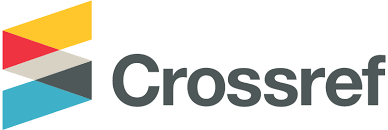ANALISA KELEMBAGAAN PENGELOLA ENERGI SEBAGAI PENDUKUNG KEBIJAKAN PENGEMBANGAN ENERGI LAUT
Abstract
Sebagai negara kepulauan, Indonesia memiliki potensi yang besar akan energi laut. seperti
pasang surut, gelombang laut, perbedaan suhu dan salinitas. Potensi energi tersebut dapat diwujudkan
menjadi energi listrik yang siap pakai. Implementasi potensi energi ini membutuhkan perhitungan aspek
teknis yang tepat, seperti lokasi yang dipilih, jenis teknologi yang akan dipakai, biaya yang dibutuhkan.
Selain aspek teknis, aspek kelembagaan harus disertakan dalam perhitungan. Tulisan ini bertujuan untuk
menganalisis kelembagaan pengelola energi dari aspek regulatif, normatif dan kognitif. Pengumpulan
data dilakukan pada tahun 2013 di lima kabupaten yaitu, Gresik, Klungkung, Flores Timur, Raja Ampat,
Bangka. Wawancara dilakukan kepada informan yang dianggap mengetahui pengelolaan energi di
lokasi. Analisis dilakukan secara deskriptif kualitatif. Hasil penelitian menunjukkan bahwa capaian aspek
regulatif terbesar pada Kabupaten Klungkung (Nusa Penida) ( 37,5%), Capaian aspek normatif terbesar
terdapat di kabupaten Nusa Penida dan Flores Timur, masing-masing memiliki nilai capaian 45%, pada
aspek kognitif menunjukkan bahwa nilai tertinggi (52,5%) terdapat pada Kabupaten Klungkung (Nusa
Penida). Prioritas lokasi untuk dikembangkan berdasarkan aspek kelembagaan (regulatif, normatif dan
kognitif) secara berurutan adalah Kabupaten Klungkung, Kabupaten Larantuka, Kabupaten Gresik,
Kabupaten Raja Ampat, dan Kabupaten Bangka. Pada wilayah yang memiliki capaian nilai aspek
regulatif rendah perlu didorong untuk membuat regulasi dan aturan yang dapat digunakan sebagai
landasan dalam pengembangan energi laut. Peningkatan aspek kognitif dan normatif perlu diberikan
dukungan berupa penguatan sosialisasi, penguatan kapasitas masyarakat dan partisipasi masyarakat.
Title: Institutional Analysis Of Energy Management To Support
Marine Energy Policy
As an archipelago, Indonesia has a huge ocean energy potential, derived from tidal, ocean
waves, temperature and salinity differences. Ocean energy potential transformed into electrical energy
that is ready to use. Utilization of energy potential requires intensive assessment on technical aspects
such as potential location, type of technology introduced, and total cost. In addition to the technical
aspects, institutional factor should be included in the asessment. This paper aims to analyze institutional
aspect, regulative, normative and cognitive. Data collection was conducted in 2013 in five districts:
Gresik, Klungkung, East Flores, Raja Ampat, Bangka. Informant interviews were carried out to determine
perception of energy management at each site. Data analysis was qualitative description. The results
showed that the greatest achievement on the regulative aspects was Klungkung-Nusa Penida (37.5%).
The highest achievement on normative aspects were Flores East and Nusa Penida district, with the
value of 45%. While the cognitive aspect shows that the highest value (52,5%) attained in Klungkung
regency. Based on Institutional Aspects (regulative, normative and cognitive), priority locations for
energy development were sequentially Klungkung regency, Larantuka regency, Gresik regency, Raja
Ampat Regency, and Bangka regency. It is recommended, for areas with low value of regulative
aspects,regulations should be stipulated for ocean energy development. Improved cognitive and
normative aspects are through strengthening intensive communication with local stake holder,community
engagementand capacity building.
Keywords
Full Text:
PDFDOI: http://dx.doi.org/10.15578/jksekp.v4i1.218
Indexed by:
---------------------------------------------------------------------------------------
Published by
Research Center for Marine and Fisheries Socio-Economic
in collaboration with
Indonesian Marine and Fisheries Socio-Economics Research Network
This work is licensed under a Creative Commons Attribution-NonCommercial-ShareAlike 4.0 International License.

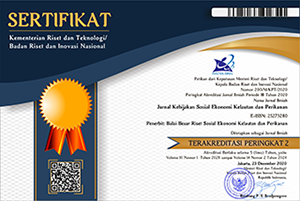
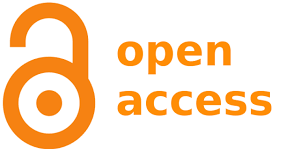





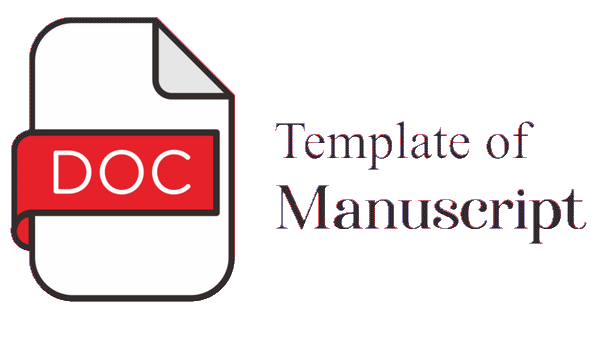
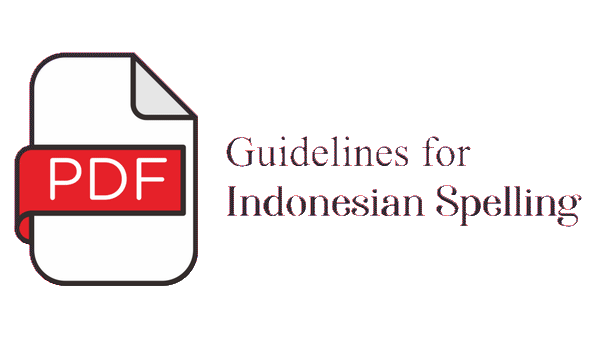
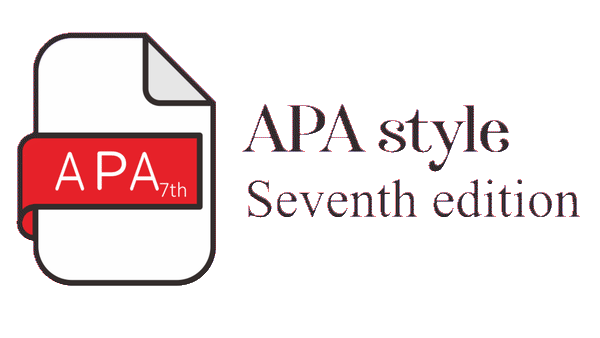


3.png)

